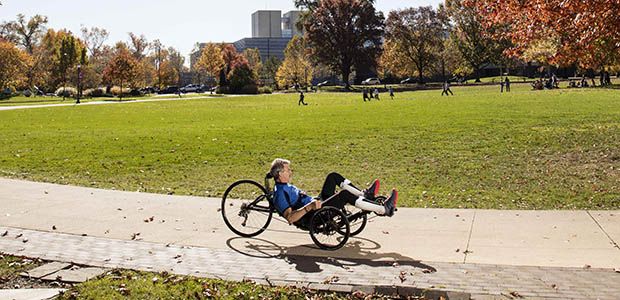Paraplegic Man Trains for the Cyborg Olympics
He’ll compete in a bike race, thanks to nerve stimulators implanted in his legs

At the inaugural Cybathlon in October 2016, people with disabilities will use sophisticated technologies to compete in a variety of futuristic sporting events. It’s the first ever cyborg Olympics, in which the potential of human-machine collaborations will be on full display. In the Cybathlon’s bike race, athletes with paralyzed legs will use nerve stimulation systems to power up their dormant leg muscles and push their feet against the bike pedals.
Each team that takes part in the Zurich games will consist of the engineers who built the assistive technology and the “pilot” who uses their gear to compete in the race. One of the teams training for the bike race is led by biomedical engineer Ronald Triolo at the VA’s Advanced Platform Technology Center in Cleveland, Ohio. Triolo's team has devised a stimulation system that delivers precise commands to the muscles through implanted electrodes.
The engineers and clinicians have been working with Michael McClellan, who was paralyzed from the waist down in a dirt bike accident. McClellan now has 10 electrodes implanted in his legs and hips, and is using Triolo’s stimulation system to ride once more. He’s training hard for the Cybathlon, and hopes to take home the gold.
Eliza Strickland is a senior editor at IEEE Spectrum, where she covers AI, biomedical engineering, and other topics. She holds a master’s degree in journalism from Columbia University.